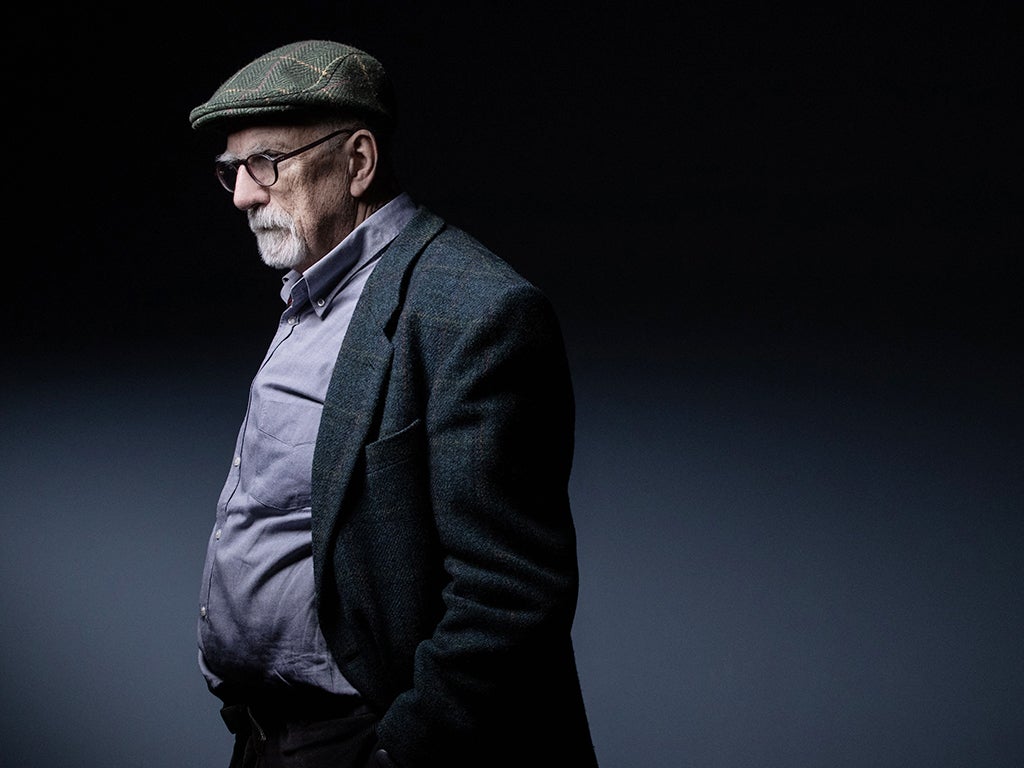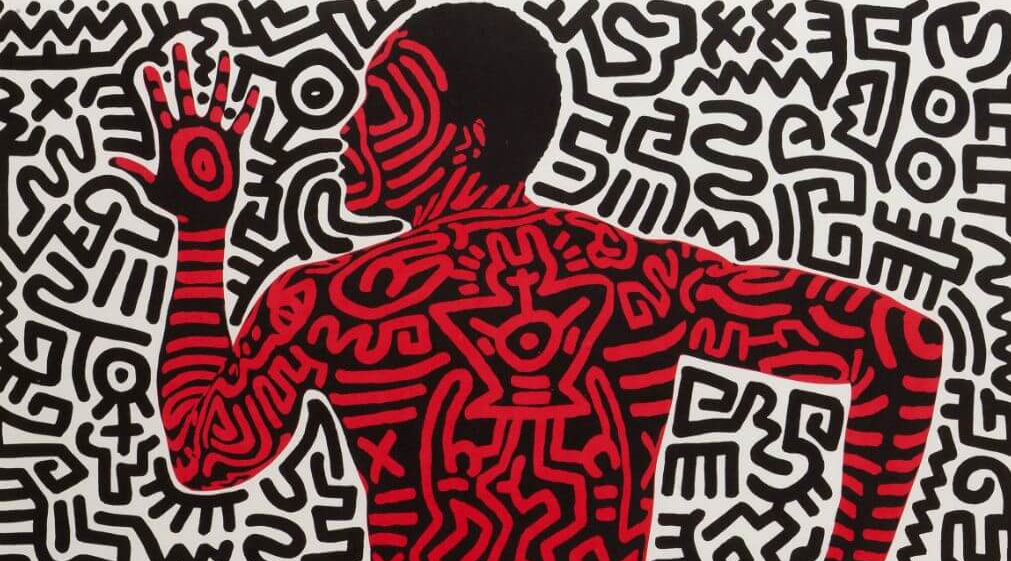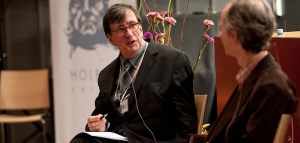For the late French intellectual in an age of ecological crisis it was crucial to understand ourselves as rooted beings.
Adam Tooze
17 October 2022

As Bruno Latour confided to Le Monde earlier this year in one of his final interviews, philosophy was his great intellectual love. But across his long and immensely fertile intellectual life, Latour pursued that love by way of practically every other form of knowledge and pursuit – sociology, anthropology, science, history, environmentalism, political theory, the visual arts, theatre and fiction. In this way he was, above all, a philosopher of life in the comprehensive German sense of Lebensphilosophie.
Lebensphilosophie, whose leading exponents included figures such as Friedrich Nietzsche and Martin Heidegger, enjoyed its intellectual heyday between the 1870s and the 1930s. It was a project that sought to make sense of the dramatic development of modern science and the way it invaded every facet of life. In the process, it relentlessly questioned distinctions between the subject and knowledge and the foundations of metaphysics. It spilled over into the sociology of a Max Weber or the Marxism of a György Lukács. In France, writer-thinkers such as Charles Péguy or Henri Bergson might be counted as advocates of the new philosophy. Their heirs were the existentialists of the 1940s and 1950s. In the Anglophone world, one might think of the American pragmatists, William James and John Dewey, the Bloomsbury group and John Maynard Keynes.
A century later, the project of a “philosophy of life” acquired new urgency for Latour in an age of ecological crisis when it became crucial to understand ourselves not as free-floating knowing and producing subjects, but as rooted, or “landed”, beings living alongside others with all the limits, entanglements and potentials that entailed.
The heretical positions on the status of scientific knowledge for which Latour became notorious for some, are best understood as attempts to place knowledge and truth claims back in the midst of life. In a 2004 essay entitled “How to Talk About the Body?” he imagined a dialogue between a knowing subject as imagined by a naive epistemology and a Latourian subject:
“‘Ah’, sighs the traditional subject [as imagined by simplistic epistemologies], ‘if only I could extract myself from this narrow-minded body and roam through the cosmos, unfettered by any instrument, I would see the world as it is, without words, without models, without controversies, silent and contemplative’; ‘Really?’ replies the articulated body [the Latourian body which recognises its relationship to the world and knowledge about it as active and relational?] with some benign surprise, ‘why do you wish to be dead? For myself, I want to be alive and thus I want more words, more controversies, more artificial settings, more instruments, so as to become sensitive to even more differences. My kingdom for a more embodied body!’”
The classical subject-object distinction traps the knowing subject in a disembodied, unworldly position that is, in fact, tantamount to death. As Latour wrote in a brilliant passage in the same essay on the training of noses, the expert smell-testers who gauge perfume, or tea or wine: “A direct and unmediated access to the primary qualities of odours could only be detected by a bodiless nose.” But what kind of image of knowledge is this? “[T]he opposite of embodied is dead, not omniscient.”
For a Burgundian – Latour was born in 1947 into a storied family of wine négociant in Beaune – this was an obvious but profound truth. To really know something, the way a good Burgundian knows wine, means not to float above the world, but to be a porous part of it, inhaling, ingesting fermentation and the chemical elements of the terroir, the irreducibly specific terrain.
For Latour, claims to meaningful knowledge, including scientific knowledge, were generated not by simple rules and procedures that could be endlessly repeated with guaranteed results, but through immersion in the world and its particularities. This implied an existential engagement: “Knowing interestingly is always a risky business,” he wrote, “which has to be started from scratch for any new proposition at hand.” What made for generative scientific discovery was not the tautological reproduction of a state of affairs by a “true” statement, but the “fecundity, productivity, richness, originality” of good articulations. Distinctions between true and false were, more often than not, banal. Only anxious epistemologists and methodologists of science worried about those. What mattered to actual scientific practice was whether a claim was “boring”, “repetitive”, “redundant”, “inelegant”, “simply accurate”, “sterile”.
If Latour was a sceptic when it came to naive claims of “detached” scientific knowledge, this also applied doubly to naive sociologies of knowledge. Critical analyses of power, whether anti-capitalist, feminist or postcolonial, were productive and inspiring. But unless it was subject symmetrically to the same critique to which Latour subjected naive claims to scientific knowledge, social theory, even that which proclaimed itself to be critical theory, could all too easily become a snare. If the relationship of life and knowledge was the problem, then, you could not cut through that Gordian knot by invoking sociology to explain physics. What was sociology, after all, but a form of organised social knowledge? For better or for worse, all you were doing in such an exercise was multiplying the articulations from one scientific discipline to another and not necessarily in a helpful or illuminating direction.
In refusing the inherited authority of the 19th and early 20th-century canon of critical social science, Latour sought to create a form of knowledge more adequate to the late 20th and early 21st centuries. Latour thus belongs alongside Michel Foucault and Gilles Deleuze and Félix Guattari as one of the French thinkers who sought to escape the long shadow of Marxism, whether in its Hegelian (Sartre) or its anti-Hegelian (Althusser) varieties.
In place of an overly substantive notion of “the economy” or “society”, Latour proposed the looser conception of actor-networks. These are assemblages of tools, resources, researchers, means of registering concepts, and doing things that are not a priori defined in terms of a “mode of production” or a particular social order. Think of the lists of interconnected objects, systems and agents that have held our attention in the past few years: shipping containers, the flow of rainwater in Taiwan, giant freighters stuck sideways in the Suez Canal driven off course by unpredictable currents and side winds. Each of these supply chain crises has exposed actor-networks, of which we were previously oblivious. During such moments we are forced to ask: what is macro and what is micro? What is base and what is superstructure? These are Latourian questions.
One of the productive effects of seeing the world this way is that it becomes irresistibly obvious that all sorts of things have agency. This realisation is disturbing because it seems to downgrade the privilege of actual human existence and the social relations between people. But Latour’s point was never to diminish the human, but instead to emphasise the complex array of forces and agencies that are entailed in our modern lives. Our existence, Latour tried to show, depends not on the simple structures that we imagined modernity to consist of – markets, states and so on – but on the multiplication of what he calls hybrids, “supply chains” in the widest sense of the word.
Latour was not a class militant. But that does not mean that he did not have a cause. His lifelong campaign was for modernity to come to consciousness of itself, to stop taking its own simplifications at face value, to recognise the confusions and hybridity that it creates and endlessly feeds off. His mission was to persuade us, as the title of his most widely read book has it, that We Have Never Been Modern (1991). The confusion of a world in which lipid bubbles, aerosols and face masks have occupied our minds for years is what Latour wanted to prepare us for.
What Latour sought to expose was the pervasive animism that surrounds us in the form of hybrid actor-networks, whose force and significance we consistently deny. “Hybrids are everywhere,” he said, “but the question is how do you tame them, or do you explicitly recognise their strengths, which is part of the animist power of objects?” What Latour diagnosed is that modernity, as part of its productive logic, systematically denies this animation of the material world. “Modernism is the mode of life that finds the soul with which matter would be endowed, the animation, shocking.”
This repression of hybrid, animated material reality, is exposed in the often-racialised embarrassment of those who believe themselves modern when they encounter human civilisations that make no secret of their animist beliefs. It also accounts for the embarrassment triggered among true believers in modern science and its ideology by the revelations of the best histories of science, such as those by Simon Schaffer, to whom Latour owed a great debt. To Latour’s delight Schaffer showed how Isaac Newton, in the first instance, saw in gravity the manifestation of the power of angels.
The modernist impulse is to dismiss such ideas as hangovers of an earlier religious world-view and to relegate African art to the anthropology museum. But at the risk of provocation and scandal, Latour’s response was the opposite. Rather than finishing the purification of modernity and expunging angels and animism from our view of the forces that move the world, he urged that we should open our ontology to encompass the giant dark matter of hybrid concepts and real networks that actually sustain modern life.
From the 1990s onwards this made Latour one of the foremost thinkers in the ecological movement. And once again he reached for the most radical and encompassing animist notion with which to frame that commitment – the Gaia concept, which postulates the existence of a single overarching living being, encompassing global ecology. This is an eerie, supernatural, non-modern idea. But for Latour, if we settle for any more mundane description of the ecological crisis – if we fit the environment into pre-existing cost-benefit models as economists often do – we fail to recognise the radicalism of the forces that we have unleashed. We fail to understand the peril that we are in: that Gaia will lose patience and toss us, snarling, off her back.
Latour’s emphatic embrace of life, plenitude and articulation did not mean that he shrank from finitude or death. Rather the opposite. It is only from a thoroughly immanent view that you truly feel the weight of life lived towards its end, and the mysterious and awesome finality that is death. It is only from an embrace of life as emphatic as Latour’s, that you truly register the encroachment of deadening forces of the mind and the body. For Latour, life and death were intertwined by the effort of those left behind to make sense of death, by every means at their disposal, sometimes at very long distance.
In September 1976 the body of Ramesses II, the third pharaoh of the 19th Dynasty of Egypt, was flown to Paris. He was welcomed with the full military honours appropriate for a great ruler, and then his body was whisked to the laboratory to be subject to medical-forensic examination. For Latour this fantastic juxtaposition of the ancient and the modern was an irresistible provocation. The naive position was that the scientists discovered that Ramesses died of tuberculosis 3,000 years ago. He was also, a racially minded police forensic scientist claimed, most likely a redhead. For Latour, the question was more basic. How can we debate claims made self-confidently about a death that took place thousands of years ago? We were not there. There was no modern medical science then. When Ramesses ceased to live, TB was not even a “thing”. It was not until 1882 that Robert Koch in Berlin identified the bacillus. And even then, no one could have made any sensible claim about Ramesses. Making the naive, apparently matter-of-fact claim – that Ramesses died of TB in 1213 BC – in fact involves giant leaps of the imagination.
What we do know and can debate are what Latour would call “articulations”. We know that as a result of the intervention of the French president Valéry Giscard D’Estaing the Egyptian authorities were prevailed upon to allow the decaying mummy to be flown to Paris for preservation. We know that in Paris, what was left of the body was enrolled in modern technoscientific systems and testing procedures leading us to venture hypotheses about the cause of death in the distant past. Every single one of those “articulations” can be tested, probed and thereby multiplied. Entire bodies of thought can be built on different hypotheses about the corpse. So, Latour maintained, rather than those who assertively claim to know what actually happened 3,000 years ago, the journalist who declared vertiginously that Ramesses had (finally) died of TB in 1976 came closer to the truth in registering both the gulf that separates us from an event millennia in the past and the radical historical immanence of our current diagnosis. In his effort to shake us out of the complacent framework of certainty that modernity had created around us, counter-intuitive provocations of this kind were part of Latour’s method.
Unlike Ramesses’ cause of death, Bruno Latour’s was well mapped. In the 21st century, a cancer diagnosis has immediate and drastic implications. It enrols you as a patient in the machinery of the medical-industrial complex. Among all the hybrids that modern societies have created, the medical apparatus is one of the most complex. It grows ever larger and imposes its urgency in a relentless and merciless fashion. If you take your critical vantage point from an early 20th-century theorist of alienation, like Lukács or Weber for instance, it is tempting to think of this technoscientific medical apparatus as a steel-hard cage that relentlessly objectifies its patients, as bodies and cases. But for Latour, this again falls into a modernist trap. To start from the premise that objectification is actually achieved is to misunderstand and to grant too much. “Reductionism is not a sin for which scientists should make amends, but a dream precisely as unreachable as being alive and having no body. Even the hospital is not able to reduce the patient to a ‘mere object’.”
Rather than reducing us, modern medicalisation multiplies us. “When you enter into contact with hospitals, your ‘rich subjective personality’ is not reduced to a mere package of objective meat: on the contrary, you are now learning to be affected by masses of agencies hitherto unknown not only to you, but also to doctors, nurses, administration, biologists, researchers who add to your poor inarticulate body complete sets of new instruments.” The body becomes a site of a profuse multiplicity: “How can you contain so much diversity, so many cells, so many microbes, so many organs, all folded in such a way that ‘the many act as one’, as [Alfred North] Whitehead said? No subjectivity, no introspection, no native feeling can be any match for the fabulous proliferation of affects and effects that a body learns when being processed by a hospital… Far from being less, you become more.”
It’s a brave image. Perhaps it was one that sustained Latour as the cancer and the agencies deployed to fight it laid waste to his flesh. Not for nothing people describe the illness as a battle. Like a war, it can go on for years.
Latour liked military images. Perhaps because they better captured his vision of history, as mysterious, opaque, complex and contingent. Military history is one area of the modern world in which even the most high-minded analysts end up talking about tanks, bridges, rivers, Himars, Javelins and the fog of war. In the end, it is often for want of nails that battles are lost. The original French title of Latour’s famous book on the 19th-century French microbiologist Louis Pasteur – Pasteur: guerre et paix des microbes suivi de Irréductions – paid homage to Tolstoy. In the English translation that reference was lost. The Pasteurization of France (1988) replaces the French’s titles nod to War and Peace with ugly sociologese.
Latour’s own life force was strong. In his apartment on Rue Danton, Paris, with the charred remains of Notre Dames in background, he shared wines with visitors from around the world from vineyards planted in response to climate change. Covid lockdowns left him impatient. As soon as global traffic resumed, in 2021 he was assisting in the curation of the Taipei biennial. Latour’s final book, After Lockdown: A Metamorphosis appeared in English in 2021. It carries his voice into the present inviting us to imagine ourselves in an inversion of Kafka’s fable, as happy termites emerging from the lockdown on six hairy legs. “With your antennae, your articulations, your emanations, your waste matter, your mandibles, your prostheses, you may at last be becoming a human being!” No longer ill at ease, “Nothing is alien to you anymore; you’re no longer alone; you quietly digest a few molecules of whatever reaches your intestines, after having passed through the metabolism of hundreds of millions of relatives, allies, compatriots and competitors.”
As he aged, Latour became more, not less radical. Often dismissed on the left for his scepticism about classical critical social theory, the ecological turn made Latour into nothing less than an eco-warrior. His cause was the overturning of the dream world that systematically failed to recognise or grasp the forces unleashed by the modernist apparatus of production and cognition. We needed to come down to Earth, to land. Only then could we begin the hard work, with other actors, of arriving at a sustainable modus vivendi. The urgency was that of war and his mobilisation was total. The range of projects that he spawned in recent decades – artistic, political, intellectual – was dizzying. All of them aimed to find new political forms, new parliaments, new articulations.
Unlike many commentators and politicians, in response to populism, and specifically the gilet jaunes protests of 2018, Latour did not retreat to higher levels of technocracy, but instigated a collective project to compile cahiers de doléance – books of complaint – like those assembled before the French Revolution of 1789. The aim was to enrol people from all walks of life in defining what they need to live and what threatened their livelihood.
Part of the project involved an interactive theatrical exercise enacted by Latour with the architect and performance-art impresario Soheil Hajmirbaba. In a kind of ritual game, the participants arranged themselves and the forces enabling and threatening their lives – ranging from sea level rise to the increased prices for diesel – on a circular stage marked out with a compass. It was, as Latour described it, “like a children’s game, light-hearted and a lot of fun. And yet, when you get near the middle, everyone gets a bit nervous… The centre of the crucible, where I timidly put my feet, is the exact intersection of a trajectory – and I’m not in the habit of thinking of myself as a vector of a trajectory – which goes from the past, all that I’ve benefited from so as to exist, to grow, sometimes without even realising it, on which I unconsciously count and which may well stop with me, through my fault, which won’t go towards the future anymore, because of all that threatens my conditions of existence, of which I was also unaware.”
“The amazing result of this little enactment,” he continued, “is that you’re soon surrounded by a small assembly, which nonetheless represents your most personal situation, in front of the other participants. The more attachments you list, the more clearly you are defined. The more precise the description, the more the stage fills up!… A woman in the group sums it up in one phrase: ‘I’m repopulated!’”
Thus, Latour reinvented the role of the engaged French intellectual for the 21st century. And in doing so he forced the follow-on question. Was he perhaps the last of his kind? Who comes after him? As far as intellectual standing is concerned, Latour would have been impatient with the question. He was too preoccupied with new problems and projects, too enthused by the networks of collaborators, young and old whose work he drew on and that he helped to energise. But in a more general sense the question of succession haunted him. That, after all, is the most basic issue posed by the ecological crisis. What comes after us? What is our responsibility to the continuity of life?
In his effort to enact the motion of coming down to Earth, Latour faced the question head on. “With my feet on the consortium’s compass, I consult myself: in terms of my minuscule actions, do I enhance or do I stifle the lives of those I’ve benefited from till now?” Asking that question, never content with complacent or self-satisfied answers, during the night of 8-9 October 2022, Bruno Latour died aged 75 in Paris, of pancreatic cancer.







 Bruno Latour. / MANUEL BRAUN
Bruno Latour. / MANUEL BRAUN


Você precisa fazer login para comentar.